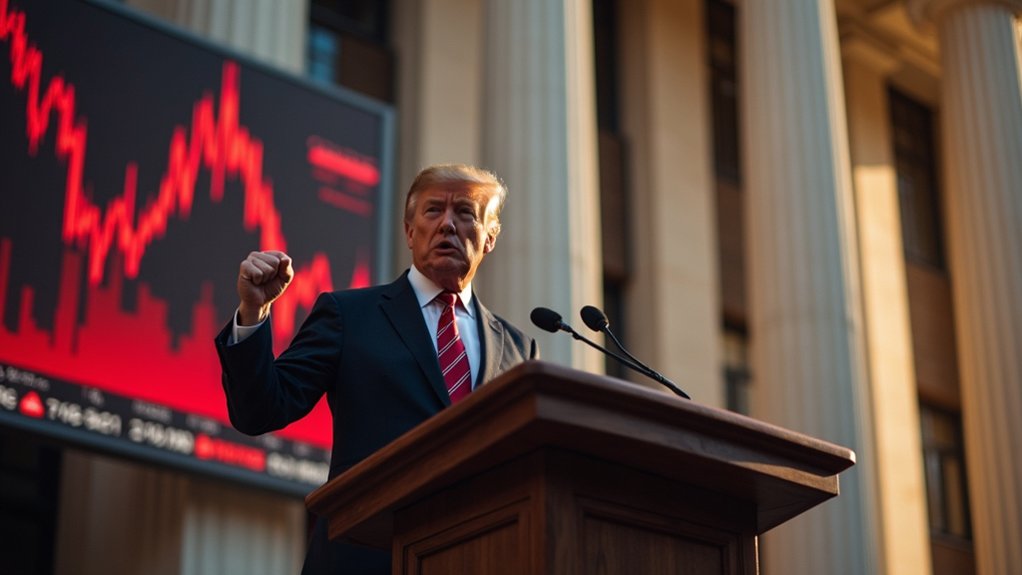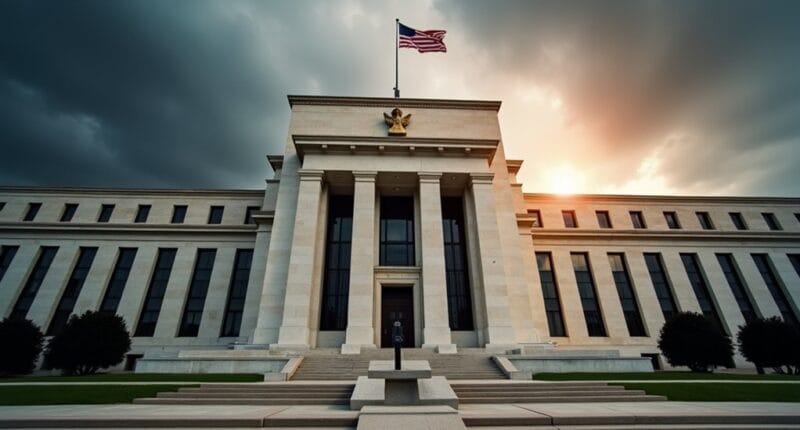Federal Reserve Governor Austan Goolsbee’s warning is clear: the Fed must maintain its independence to effectively combat inflation. History shows that political meddling in monetary policy leads to economic disaster – just ask Zimbabwe. Independent central banks consistently deliver lower, more stable inflation rates. Markets watch closely, ready to punish any hint of political interference with higher borrowing costs. The stakes couldn’t be higher for America’s economic future, and there’s much more to this story than meets the eye.

Independence matters more than ever in America’s fight against inflation. As the Federal Reserve faces mounting pressure from politicians keen for quick fixes, history shows why central bank autonomy isn’t just some fancy economic theory – it’s absolutely vital for keeping prices stable and the economy healthy.
The Fed’s creation in 1913 wasn’t an accident. Congress deliberately set up the central bank to operate without direct political interference, even when its decisions make elected officials squirm. Business cycles demonstrate why central banks must maintain independence to effectively manage economic fluctuations.
Sure, politicians define the Fed’s broad mandates of stable prices and maximum employment, but they’re supposed to keep their hands off the actual monetary policy controls. There’s a good reason for that separation. The President can only remove Federal Reserve Board members for cause, not over policy disagreements.
Political oversight ends with the Fed’s mandate – the nitty-gritty of monetary policy must remain free from legislative meddling.
Recent concerns about tariff-induced inflation have highlighted the risks of political interference in monetary policy. Let’s face it – politicians love low interest rates. Who doesn’t? But giving in to that temptation is like letting your teenage kid manage your credit cards. The evidence is crystal clear: countries with independent central banks consistently maintain lower, more stable inflation than those where politicians call the monetary shots. Just ask Zimbabwe how well political meddling in central banking worked out for them.
The research backs this up. A landmark study by Alesina and Summers showed that developed nations with highly independent central banks experienced notably lower inflation from 1955 to 1988.
It’s not rocket science – when central banks can make tough decisions without worrying about the next election cycle, they’re more likely to do what’s actually needed rather than what’s politically convenient.
Markets aren’t stupid either. They watch Fed independence like hawks. Any hint that political pressure is influencing monetary policy can trigger bond market sell-offs faster than you can say “hyperinflation.”
That means higher borrowing costs for everyone – from the government to ordinary Americans buying homes or cars.
The message is clear: letting politicians meddle with monetary policy is about as smart as letting a fox guard the henhouse. The Fed needs to maintain its independence to effectively fight inflation, even when its decisions aren’t popular.
Because sometimes, the right medicine doesn’t taste very good.



